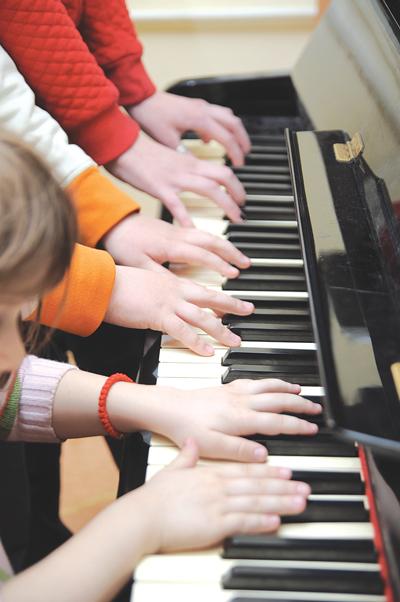Music and Education Go Hand in Hand
Education of children is one of the greatest responsibilities of parents and guardians. Parents care about their kids’ academic achievement. Superior academic achievement is especially important in the current employment climate because employers are looking for the best students.
Music educators have always believed that a child’s cognitive, motivational, and communication skills are more highly developed when exposed to music training. Now, study after study proves that music instruction is essential to children’s overall education because it improves their academic performance. The positive effects of music education are finally being recognized by science, verifying what music teachers have always suspected.
Since the dawn of civilization, music has been an integrated part of a
child’s education, as society realized the potential that sounds have in shaping
the mind of a young pupil. In most countries in the world today, music
lessons are still offered in schools as part of the basic curricula, along with
sports and drawing. The Ancient Africans and Greeks recognized the importance
of all these activities being performed alongside mathematics and
physics, because they complemented each other.

Many studies have been performed to examine the affect of musical instruction on the brain. Researchers at the University of Munster, Germany, (1998) reported that music lessons in childhood actually enlarge the brain. The auditory cortex is enlarged by 25 percent in musicians compared to those who have never played an instrument. According to a study by Frances Rauscher of the University of California, Irvine, (1997) links between neurons in the brain are strengthened with music lessons. Dr. Frank Wilson’s study (1989) involving instrumental music instruction and the brain revealed that learning to play an instrument refines the development of the brain and the entire neurological system.
Mrs. Kia Walker, the owner of the Blue Violin Music Education Center has instructed music for 15 years. She found that music education improves the students skills in several categories in as little as four months of instruction. Improvement categories include academic, social, memory, language, mathematics and science. She also found an improvement in the confidence of the students to excel. By having a musical instrument to express themselves they are able to surpass in all activities. She has also found an improvement in the students’ time management skills. The students have to assess the time needed to master the skills it will take to perfect their public performances of songs and melodies. The multi dimensional activities leading to the performance include memories, rehearsals and playing skills.
Photo: In most countries in the world today, music lessons are still offered in schools as part of the basic curricula, along with sports and drawing.